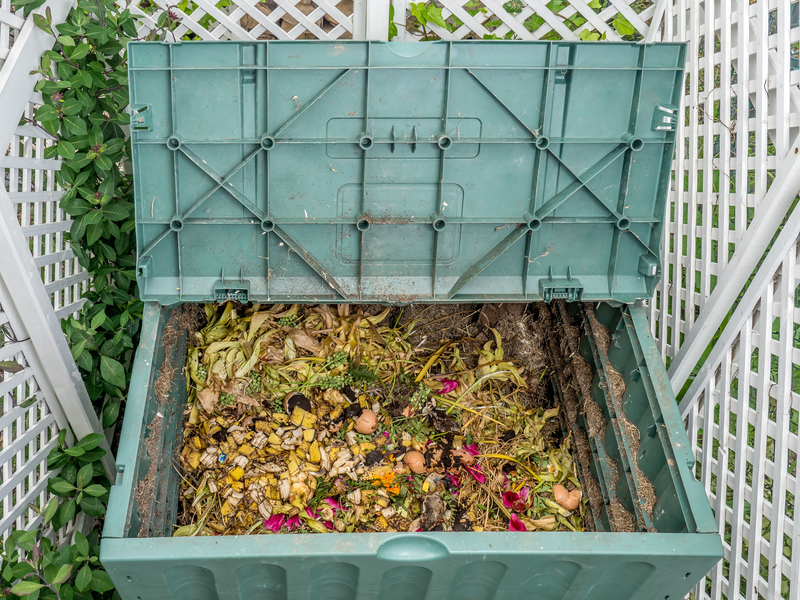In today's fast-paced world, restaurants are under constant pressure to serve delicious dishes and maintain a reputation for quality. Amidst this, restaurant waste management has emerged as a crucial aspect of sustainable operations. The spotlight has turned to food recycling solutions, highlighting inventive ways to transform food waste into valuable resources.
The Urgency of Addressing Food Waste in Restaurants
With global food production hitting new highs, it is alarming to note how much of it ends up as waste. The food service sector alone is responsible for a significant portion of this wastage. This food waste not only represents lost revenue but also contributes to detrimental environmental impacts due to increased greenhouse gases. Hence, the quest for efficient food recycling solutions becomes more relevant than ever.

Understanding Food Recycling in the Restaurant Industry
To effectively tackle food waste, it's imperative to understand what food recycling entails.
- Food Recycling: The process of recovering food waste to be used in various forms rather than disposing of it in landfills.
- Upcycling: Converting food waste into new products of higher quality or value.
- Composting: A natural process of recycling organic waste into nutrient-rich soil.
Strategies for Reducing and Recycling Food Waste in Restaurants
Several strategies have emerged as game-changers for the restaurant industry in managing their food waste effectively:
1. Implementing a Waste Audit
A crucial starting point for any restaurant aspiring to cut down on waste is performing a waste audit. This process includes:
- Analyzing the type of waste: Determine what kind of waste is being produced, be it packaging waste, organic food waste, or other materials.
- Measuring quantities: Quantify the various types of waste to understand their extent and know where to focus efforts.
2. Embracing Technology for Better Inventory Management
Modern technology is a powerful ally in waste reduction:
- AI-powered inventory systems: Use data analytics to predict demand more accurately, minimizing over-ordering.
- Real-time tracking: Monitor inventory in real-time to react to changes swiftly, thereby reducing spoilage.
3. Collaborative Partnerships with Food Banks
Restaurants can partner with local food banks to redistribute surplus food:
- Donating excess: Provide surplus food to food banks, shelters, or community centers.
- Tax benefits: Many regions offer tax incentives for businesses that donate to charities, adding a financial motivation to the equation.
4. Conversion to Animal Feed
An innovative recycling strategy involves turning food waste into animal feed:
- Regulatory compliance: Ensure adherence to safety standards when repurposing food waste as animal feed.
- Partnering with farms: Build partnerships with local farms to create a mutually beneficial cycle of surplus from the restaurant going back to nature.
The Role of Consumers in Food Waste Reduction
While restaurant practices play a significant role, consumer behavior is equally crucial:
- Raising awareness: Engage with customers about portion sizes and offer options for smaller servings or takeaways.
- Engaging patrons: Encourage customers to participate in sustainability initiatives through loyalty programs and reward systems.
Challenges and Opportunities in Food Recycling
While the opportunities for transforming restaurant waste are immense, several challenges persist:
- Operational costs: Investing in recycling infrastructure can be costly for smaller restaurants.
- Regulatory barriers: Many regions have strict regulations surrounding the transport and processing of food waste.
- Education and training: Staff training and awareness are critical for effective waste management.
- Consumer uptake: Getting customers to fully engage with new initiatives can be met with resistance initially.

Future Trends in Food Recycling Solutions for Restaurants
The future of food recycling in restaurants is robust with potential innovations:
- Biogas production: Turning food waste into energy through anaerobic digestion presents a dual benefit of waste reduction and energy production.
- Advanced composting: Using cutting-edge composting technologies speeds up the decomposition process, making it feasible for urban restaurant settings.
- Blockchain for transparency: Ensuring a transparent food supply chain can help track waste and optimize recycling efforts at each step.
Conclusion: Embracing a Circular Economy
In conclusion, restaurant food recycling solutions are vital for creating a sustainable future. By adopting these strategies, the food service industry can significantly reduce its environmental footprint while also potentially realizing financial benefits. This transformation aligns with the broader movement toward a circular economy -- where resources are continually reused rather than discarded.
The call to action is clear: restaurants must not only prioritize the quality of their culinary offerings but also commit to sustainable practices that champion food recycling and resource conservation.